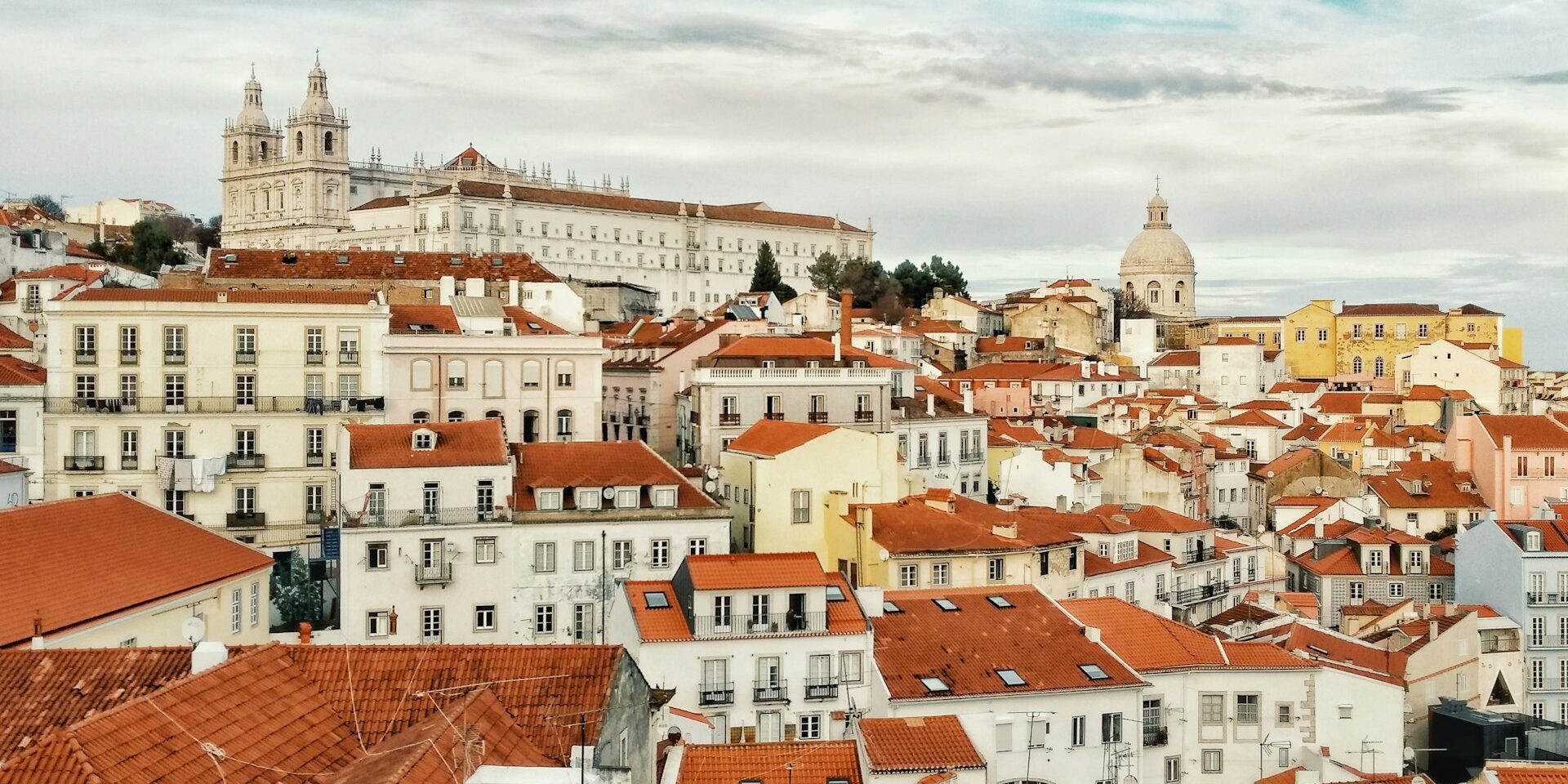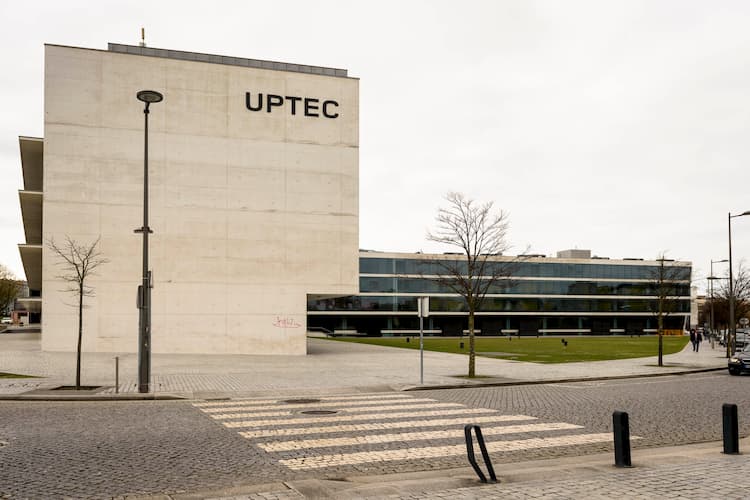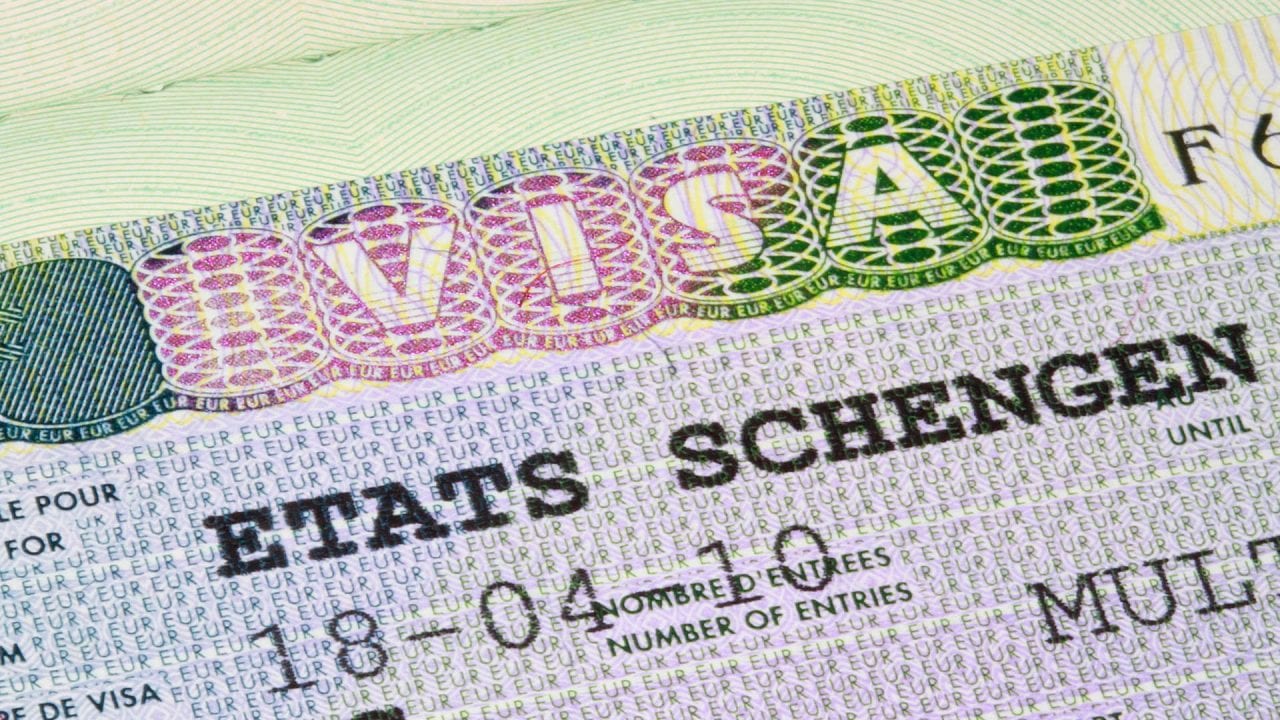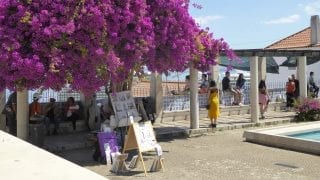Are you a non-EU entrepreneur looking to invest in an existing Portuguese business, grow your existing entity by branching into Portugal, or simply want to start a new business? The Portugal D2 Visa might just be the key to unlocking your Portugal entrepreneurial residency goals.
The Portugal D2 Visa offers foreign investors and entrepreneurs an opportunity to explore the Portuguese commercial market and, by extension, the European business climate – all the while benefiting from visa exemptions for travel through the Schengen Area, a high quality of life accompanied by relatively affordable living costs, permanent residency and family reunification opportunities.
We understand that navigating foreign bureaucracy, understanding visa eligibility criteria, and self-managing application processes can prove quite daunting, and that’s why we’ve curated this comprehensive guide to help make your Portugal D2 Visa application process as seamless as possible.
This article’s key takeaways include:
- What is the Portugal D2 Visa
- An overview of investing activities
- Portugal D2 Visa benefits
- D2 Visa eligibility, requirements and the application process

What Is the Portugal D2 Visa: An Overview
The Portugal D2 Visa is a residency visa tailored for entrepreneurs and foreign nationals looking to establish independent professional activities in Portugal. This immigrant entrepreneur visa is designed for those who aim to:
- Start a new business
- Expand an existing business
- Work as service providers for companies in the country
Unlike the Portugal Golden Visa, which primarily targets investors making a significant financial commitment to Portugal’s economy, the D2 Visa focuses on investing activity and establishing viable enterprises within the Portuguese territory.
Key features of the D2 Visa include:
- Flexibility: It accommodates many businesses – from small cafes to medium companies.
- Financial Requirements: Applicants must demonstrate sufficient financial resources to sustain their business and living expenses for at least one year.
The D2 Visa process involves several steps:
- Initial Validity: The visa is initially valid for four months, during which time the applicant must enter Portugal and apply for a residence permit.
- Residency Permit: Once granted, this permit is valid for two years and can be renewed for three additional years.
- Path to Citizenship: After five years of continuous residency, individuals may apply for citizenship and/or permanent residence in Portugal.
Additionally, the D2 Visa supports family reunification, allowing family members of the primary visa holder to join them in Portugal. To maintain residency, the visa holder and their family must reside in Portugal for more than six months yearly.
The Portuguese government introduced the D2 Visa to attract foreign capital to the Portuguese economy, focusing on contributions that are:
- Economic
- Social
- Cultural
- Scientific
- Technological
The Portugal D2 Visa is a practical pathway for non-EU entrepreneurs looking to contribute to the Portuguese economy. It stands apart from other residency options like the Portugal Golden Visa and D7 Passive Income Visa, which have different requirements and target different investor profiles. After successfully establishing a business and meeting residency criteria, D2 Visa holders can aspire enjoy the benefits of living in Portugal and obtain a permanent residence permit and/or citizenship after five years, provided they meet all the requirements.

What are the benefits of the Portugal D2 Visa?
Visa-free travel in the Schengen Area
As a holder of the Portugal D2 Visa, you gain visa-free travel rights within Portugal and across the Schengen Area, which includes 26 other European Union countries. This facilitates easier movement for business and personal purposes, allowing you to connect and network effectively with European Union citizens.
Family reunification
One of the standout features of the D2 Visa is its provision for family reunification. Eligible family members can join you in Portugal, including dependent children, your spouse, parents, and minor siblings. This means you don’t have to leave your loved ones behind as you embark on your entrepreneurial journey.
Pathway to permanent residency and citizenship
The D2 Visa serves as a route to permanent residency in Portugal. After five years of legally authorized residence, you may apply for permanent residency and request Portuguese nationality.
Access to the public healthcare system
With a Portuguese residence permit, you and your family members gain access to the public healthcare system, ensuring you have essential medical services available during your stay.
Tax incentives
The Portugal D2 Visa provides significant tax incentives, particularly in light of recent changes to the country’s tax regime. As of January 2024, the Non-Habitual Resident (NHR) program has been phased out for new applicants. This program previously attracted many investors with tax-free transactions and low foreign income tax rates.
A transitional period allows those who qualified before December 31, 2023, to apply until March 2025 if they meet specific criteria, such as securing an employment contract or property lease.
Portugal has introduced the Incentive for Scientific, Research, and Innovation (NHR 2.0) in its place, which benefits Portugal D2 Visa applicants in designated sectors like education and technology.
Key benefits of the NHR 2.0 include:
- Flat Tax Rate: A 20 percent flat tax on income earned in Portugal, appealing to Portuguese entrepreneur visa holders.
- Tax Exemptions: Possible exemptions on foreign-sourced income, including dividends, interest, capital gains, and rental income.
- Extended Duration: Retain these tax benefits for up to ten years, facilitating long-term tax residency in Portugal.
Portugal’s double taxation agreement further helps mitigate tax burdens. For those not qualifying for the NHR or NHR 2.0, standard progressive corporate tax rates of 25% to 28% apply. Thus, while the tax landscape changes, the D2 Visa remains valuable for leveraging Portugal’s favorable tax climate and maximizing financial benefits.
Opportunities for independent service providers
The D2 Visa allows you to work as an independent professional or establish a business in Portugal. This flexibility opens up avenues for entrepreneurship, enabling you to cater to the needs of the local market while benefiting from the European Union’s broader economic opportunities
Initial residency permit validity
After receiving your D2 Visa, you must obtain a Portuguese residence permit. The D2 Visa is initially valid for three months, during which you need to secure your residence permit through AIMA (Agency for Integration, Migration and Asylum). This residence permit is essential for maintaining your legal status in Portugal.

What are the requirements for the Portugal D2 Visa?
If you’re a non-EU/EEA/Swiss freelancer, entrepreneur, or independent service provider looking to live in Portugal, you may be eligible for the Portugal D2 Visa. To apply successfully, you must meet several key requirements set forth by the Portuguese government.
Eligibility Criteria
Nominal business capitalization
You must demonstrate that you have an existing company in Portugal or possess sufficient financial resources to open a branch or invest in a Portuguese company. While there is no official minimum amount, providing at least €5,000 as a starting point for your business investment is advisable.
Personal financial requirements
You must prove you have enough funds to support yourself and any dependents. The minimum financial requirements are as follows:
- Principal applicant: 200 percent of the Portugal minimum annual salary (€19,860)
- Spouse: 50% of the annual minimum salary (€9,840)
- Dependent child: 30% of the annual minimum salary (€5,904)
For example, a couple with two dependent children under 18 would need at least €41,488 per year to meet the sufficient funds requirement
Solid business plan
Your business plan must demonstrate the viability of your venture and show how it will contribute to Portugal’s economic growth. It should include details about its social, cultural, and economic impact, illustrating your commitment to positively influencing the local community.

Reason for choosing Portugal
You need to explain why you chose Portugal as the location for your business activity. Focus on how your enterprise will address local needs and contribute to the economy rather than just highlighting favorable weather or cost of living.

Comprehensive health insurance
Purchasing health insurance that covers you and your dependents throughout the EU is mandatory. This insurance should be valid for the entire duration of your residency permit and typically costs between €300 and €1,000 annually.
Portugal D2 Visa minimum duration
To qualify for residency permit renewal, you must meet certain stay requirements. Initially, you must remain in Portugal for at least four months in your first year and at least six months in subsequent years.
Required Documentation
In addition to the eligibility criteria, you must prepare a variety of personal and business documents:
- Business documents:
- A detailed, solid business plan outlining your venture’s objectives and impact
- Proof of your existing company or financial resources
- An investment declaration detailing the type and value of your investment
- Evidence of your company establishment or a contract if you’re an independent service provider
- Personal documents:
- A Tax Identification Number (NIF) and a Portuguese bank account
- Completed D2 Visa application form
- A valid passport with a minimum validity of six months beyond the visa expiration
- Two recent passport-sized photographs
- A criminal background check from your country of origin, valid for no more than three months
- Proof of sufficient funds to support yourself and your family
- Proof of accommodation in Portugal, such as a rental contract or property ownership documents
- Travel insurance covering at least six months
Ensuring you meet these requirements and have the necessary documentation can enhance your chances of successfully applying for the Portugal D2 Visa. If you have questions or need assistance, consider consulting an immigration specialist for tailored advice regarding your entrepreneur visa Portugal application.

How to Apply for the Portugal D2 Visa
Applying for a Portugal D2 Visa involves a structured process designed for foreign nationals aiming to establish a business or freelance activity in Portugal. Generally, the application process takes around two to three months, especially if you already have a solid business plan or a registered company in Portugal. Below are the steps you need to follow:
- Get a Portuguese Tax Number (NIF): Before applying for your Portugal D2 Visa, you’ll need your Portuguese Tax Identification Number or NIF (Número de Identificação Fiscal). This number is crucial for visa-related activities, such as opening a bank account, signing legal documents, and making business arrangements.
You can obtain your NIF at a local tax office in Portugal, but online services can help you secure it from abroad. Having your NIF ready will streamline the application process and help you navigate the necessary financial and legal steps more easily. As a non-EU national, you will need to have a fiscal representative. - Open a Portuguese bank account: After you have your NIF, the next logical step is to open a Portuguese bank account. This will simplify managing your finances as you prepare for your D2 Visa application. A local bank account allows you to avoid international transaction fees and makes handling payments related to your visa requirements easier.
Additionally, many transactions in Portugal—especially smaller purchases—are often best done with a local bank card or cash. By opening a bank account, you’ll have quick access to your funds and can ensure that all your financial activities are handled smoothly during the application process. - Gather necessary documents: Begin by compiling all required documents. This includes your solid business plan, proof of sufficient funds to support your means of subsistence, a clear criminal record check, personal identification, your NIF and proof of accommodation in Portugal.
- Application submission: Schedule an appointment at the Portuguese consulate in your country of residence. Submit your D2 Visa application and all the necessary documents during this appointment.
- Visa processing: After submitting your application, the processing typically takes about 60 days. If approved, you’ll receive a valid D2 visa to travel to Portugal, typically valid for four months.
- Entering Portugal: Upon arrival in Portugal, you must apply for a residence permit from the Immigration and Border Services (SEF). This involves attending an appointment to submit biometric data and further documentation.
- Obtaining a residence permit: After submitting your application for the Portugal residence permit, processing may take up to six months. If your D2 visa expires before you receive your residence permit, you can use proof of your appointment booking to maintain your legal status in Portugal.
- Long-term residency: After five years of residence in Portugal, you may apply for permanent residency and/or Portuguese citizenship, provided you meet all the requirements.
Throughout this process, it’s essential to ensure that all documents are complete and accurate to meet the requirements set by the Portuguese government. Failure to provide proof of funds, business viability, and compliance with local laws can delay or jeopardize your application.

Portugal D2 Visa Processing Times and Costs
When applying for the Portugal D2 Visa, you’ll encounter several key costs:
- Government fees: The Portuguese government sets official fees ranging from approximately €90 per applicant. This makes the D2 Visa relatively affordable compared to other residency options.
- Investment capital: While there’s no minimum capital requirement for the D2 Visa, investing at least €50,000 is generally recommended. A higher investment enhances the credibility of your business plan and signals financial stability, which can improve your chances of visa approval.
- Additional costs: Don’t forget to account for direct costs associated with your move, such as relocation expenses and fees for professional immigration consultations. These can vary widely based on your specific situation.
- Living expenses: You must demonstrate that you have sufficient means to support yourself and any dependents in Portugal, and have an annual threshold of at least €10,640.
Processing times for the Portugal D2 Visa
The processing time for the Portugal D2 Visa generally takes about two months after submitting your application, provided you meet all eligibility requirements. However, this timeframe can vary based on the volume of applications and your country of origin.
Once your application is approved, you will receive a four-month visa. During this time, you must travel to Portugal and apply for your residence permit through the Agency for Integration, Migration, and Asylum (AIMA). Securing this appointment can take an additional month, making the total process around six months from application to receiving your residence permit.
Pathway to Permanent Residency and Portuguese Citizenship
If you’ve lived legally in Portugal for five years on a Portugal D2 Visa, you’re on your way to applying for permanent residency and citizenship.
Requirements for permanent residency
To secure a permanent residency permit through the D2 Visa, you need to meet several important criteria:
- Residency duration: You must have lived in Portugal for at least five years. This doesn’t need to be continuous, but you can’t have gaps longer than six consecutive months or eight non-consecutive months.
- Financial stability: You must prove you have a stable and regular income to support yourself and any dependents.
- Accommodation: It is essential to demonstrate that you have a place to live, such as proof of property ownership or a rental agreement.
- Clean criminal record: A clean criminal record is required, meaning no serious convictions in Portugal.
- Social Security registration: You must register with Portuguese Social Security and show that you’ve made regular contributions. This requires obtaining an NISS number, which is similar to a Social Security number in the US.
- Health insurance: As a legal resident, you’ll have access to the national healthcare system, but valid health insurance is necessary until your permanent residency is approved.
- Integration into society: Evidence of your commitment to integrating into Portuguese life, such as language skills or community involvement, may be needed.
Once you have all your documents in order, you must book an appointment with AIMA to submit your application.
Requirements for Portuguese citizenship
One key requirement for those looking to become Portuguese citizens is demonstrating proficiency in the Portuguese language. This applies primarily to applicants from non-Portuguese-speaking countries, who must show at least A2-level proficiency.
Portugal D2 Visa versus Start-Up, D7 and Golden Visa
When considering moving to Portugal, it’s essential to understand the various visa options available. Each serves distinct purposes based on your goals, financial situation, and business aspirations. Here’s a breakdown of how the Portugal D2 Visa compares to the Startup Visa, Golden Visa, and D7 Visa.
Portugal D2 Visa vs. Portugal Startup Visa
While the D2 Visa and Startup Visa both cater to entrepreneurs, they differ in requirements and complexity:
- D2 Visa: This option is designed for individuals looking to establish a business in Portugal. It typically requires a solid business idea and a more significant investment, making it a less complicated route overall. Applicants must demonstrate the viability of their business plan and financial stability.
- Startup Visa: To qualify for this visa, the Agency for Competition and Innovation (IAPMEI) must accept your business idea. This visa is geared towards individuals or teams with innovative concepts still in their early stages. It can also lead to opportunities for incubation in accredited programs, making it ideal for those looking to scale a nascent business.
In summary, choose the D2 Visa if you have a well-established business plan and a solid investment. Opt for the Startup Visa if you have a groundbreaking idea that needs nurturing.
Portugal D2 Visa vs. Portugal Golden Visa
The Portugal Golden Visa is another popular option, primarily aimed at high-net-worth individuals:
- D2 Visa: This visa suits entrepreneurs looking to start a business. It requires demonstrating an actionable business plan and sufficient investment capital.
- Golden Visa program: This visa requires a significant investment into the Portuguese economy, with investment options including investment funds and job creation. The Portugal Golden Visa offers a faster path to residency and appeals to those who can afford the investment without intending to run a business.
Both visas offer temporary residence permits valid for two years, which can then be renewed. The choice here hinges on whether you aim to actively manage a business (D2 Visa) or prefer a more passive investment strategy (Golden Visa).
Portugal D2 Visa vs. Portugal D7 Visa
The D7 Visa is designed for individuals with a stable passive income:
- D2 Visa: As mentioned, the D2 Visa is for those interested in entrepreneurship and starting a business in Portugal. It emphasizes the need for a viable business plan and investment.
- D7 Visa: This visa is perfect for retirees or individuals with a steady income from pensions
,investments, or real estate, etc. If you wish to live in Portugal without the responsibility of running a business, the D7 Visa is the ideal choice.
Both the D2 and D7 visas can lead to a pathway for permanent residency after a specified period, but they cater to vastly different lifestyles and intentions.
Frequent questions about Portugal D2 Visa (entrepreneur visa)
Below, you’ll find the most common questions everyone has about Portugal’s D2 Visa.
What is the purpose of the Portugal D2 Visa?
The D2 visa allows non-European third-country citizens to gain residency in Portugal, opening the pathway for citizenship after five years. The program is aimed at investors seeking to operate a business in Portugal, offering the potential to extend within the EU and globally.
What are the Portugal D2 Visa eligibility requirements?
Nominal business capitalization. You must prove that you have an existing company in Portugal, have enough financial resources in Portugal to open a branch or invest in a Portuguese company.
Does the Portugal D2 Visa allow for family reunification?
Yes. It depends on several things, but your spouse/partner, children under your charge, dependent parents, and minor siblings can also get a D2 Visa for Portugal.
The Portuguese government will allow you to bring all those who depend on you as you prove you can provide for them here in Portugal.
What are the advantages of having your business in Portugal?
Advantages include access to an ecosystem of startups and competitive companies, government support and incentives, highly qualified employees (for an affordable cost), safety and access to the European market.
What are the disadvantages of having your business in Portugal?
While there are numerous advantages to establishing your business in Portugal, it’s essential to consider some potential disadvantages as well. These include a high corporate tax rate, bureaucratic challenges, language barriers, and the long waiting times associated with obtaining your residency, which can delay your path to full legal status.
Do Portugal D2 Visa applicants need health insurance?
Yes, Portugal D2 Visa applicants must purchase health insurance that covers them in Portuguese territory. Health insurance prices range depending on the provider and coverage options, but you must ensure adequate protection.
Do Portugal D2 Visa holders need to pay taxes in Portugal?
Yes, Portugal D2 Visa holders are subject to corporate tax and income tax based on their business activities. They must comply with the local tax regime and report to the Portuguese tax authority.
Can holding a Portugal D2 Visa lead to permanent residence?
Absolutely! After a five-year period, holders of the D2 Visa can apply for permanent residence. This process includes benefits like visa exemption for travel within the Schengen Area, making the entrepreneur visa Portugal a solid path toward long-term residency.
Can a Portugal D2 Visa holder apply for Portuguese citizenship?
Yes. A Portugal D2 Visa holder can apply for Portuguese citizenship after meeting specific residency requirements and legally residing in Portugal for five years. This opens the door to becoming a Portuguese citizen and enjoying the same rights as other European Union citizens.
Can Portugal D2 Visa applicants choose to invest in an existing business?
Yes, Portugal D2 Visa applicants can choose to invest in an existing business. This option can be a strategic way to contribute to economic growth while securing a Portugal residency visa. By investing in an existing business, you can leverage an established business location and its operational framework, making it easier to navigate the local market.
This path can be an effective means to fulfill the requirements of the D2 Visa while promoting business development in Portugal.







